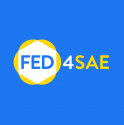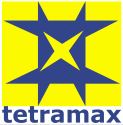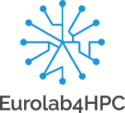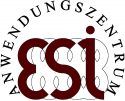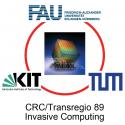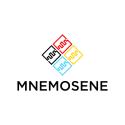9.8 Special Session: IBM's Qiskit Tool Chain: Developing for and Working with Real Quantum Computers
Date: Thursday 28 March 2019
Time: 08:30 - 10:00
Location / Room: Exh. Theatre
Organiser:
Robert Wille, Johannes Kepler University Linz, AT
Chair:
Robert Wille, Johannes Kepler University Linz, AT
Quantum computers promise substantial speedups over conventional computers for many practical relevant applications such as quantum chemistry, optimization, machine learning, cryptography, quantum simulation, systems of linear equations, and many more. While considered "dreams of the future" for a long time, recent years have shown impressive accomplishments - leading to the first real quantum computers which can be utilized by everyone. A leading force within this development is IBM Research which launched the IBM Q Experience - the first industrial initiative to build universal quantum computers and make them accessible to a broad audience through a cloud access. In the meantime, a worldwide network of Fortune 500 companies, academic institutions, and startups work within this initiative and collaborate to advance quantum computing. This special session aims to foster this potential by introducing Qiskit to the EDA community as well as showcasing success stories on how to develop new methods for as well as how to work with the tool - eventually allowing for efficiently and robustly executing algorithms on a real quantum computer. To this end, the special session covers all sides: IBM's own perspective on Qiskit and the IBM Q Experience, the developer view on how to develop new methods for Qiskit (sometimes outperforming IBM's own solutions using EDA expertise), as well as the user-view on how Qiskit and its extensions can be utilized to actually work with quantum computers.
| Time | Label | Presentation Title Authors |
|---|---|---|
| 08:30 | 9.8.1 | QISKIT: AN OVERVIEW OF THE OPEN-SOURCE FRAMEWORK FOR QUANTUM COMPUTING Author: Yehuda Naveh, IBM Research, US Abstract The first talk will provide an overview on Qiskit, the leading software library and framework for quantum computing. Qiskit includes libraries to support front-end description of quantum algorithms and applications, back-ends which include interfaces to actual quantum computers (IBM Q), simulators for simulating quantum programs on classical computers - with and without simulation of quantum noise, and all other software modules and tools needed in between. Qiskit forms a lively center of interest for developers and users. Originated and led by IBM, it now has a highly collaborative, worldwide team of enthusiasts, contributing code and engaging in discussions on any and all aspects of quantum computing. |
| 09:00 | 9.8.2 | DEVELOPING FOR QISKIT: INTRODUCING EDA METHODS INTO THE TOOLKIT Author: Robert Wille, Johannes Kepler University Linz, AT Abstract Although Qiskit is a powerful tool, it still offers much room for improvement. In fact, many problems to be addressed by Qiskit are solved in a rather straight-forward fashion thus far. Here, the EDA community can introduce its expertise. The talk will discuss how developers can extend Qiskit e.g. by clever data-structures and sophisticated search methods which are taken for granted in the EDA community, but have not fully be exploited within Qiskit yet. The talk shows how the power of EDA actually can be applied to clearly outperform IBM's own solutions. As one example, it is demonstrated how EDA helped winning the Qiskit Developer Challenge organized in summer 2018 by IBM. |
| 09:30 | 9.8.3 | USING QISKIT: NISQ-ERA COMPILATION FOR QISKIT Author: Rod Van Meter, Keio University, JP Abstract The talk will give an overview of user activities with a particular focus on compilation for Qiskit. This task has more in common with place-and-route design for computer hardware than it does with compiling programs into instructions for classical computers. In the area of so-called Noisy Intermediate-Scale Quantum (NISQ) technology, heterogeneity has to be taken into account, i.e. individual qubits and couplers between them vary dramatically in fidelity or quality. The talk will cover software to optimize the placement of program variables into qubit storage locations on the processor, and to maximize the fidelity of operations when moving the variables around inside the processor. Unfortunately, the problem is inherently NP hard such that compiling even for 20 qubits is challenging. Hence, heuristics such as beam search are applied to the problem. |
| 10:00 | End of session Coffee Break in Exhibition Area
On all conference days (Tuesday to Thursday), coffee and tea will be served during the coffee breaks at the below-mentioned times in the exhibition area. Lunch Breaks (Lunch Area)On all conference days (Tuesday to Thursday), a seated lunch (lunch buffet) will be offered in the Lunch Area to fully registered conference delegates only. There will be badge control at the entrance to the lunch break area. Tuesday, March 26, 2019
Wednesday, March 27, 2019
Thursday, March 28, 2019
|



